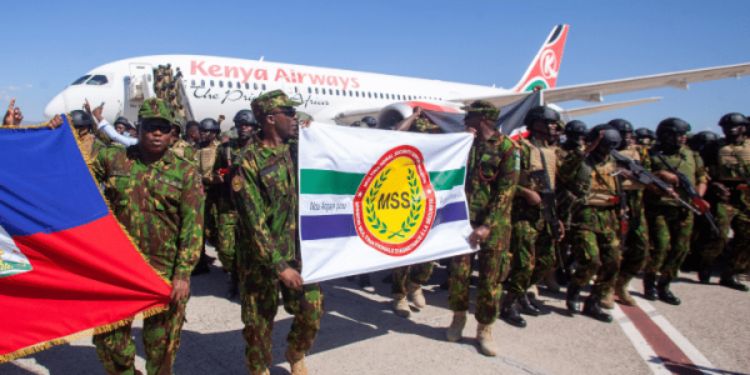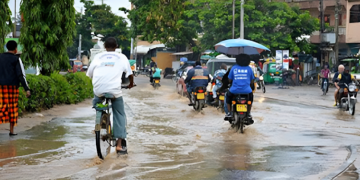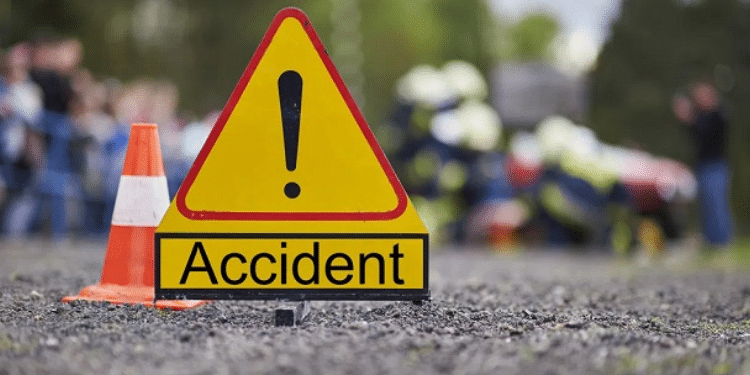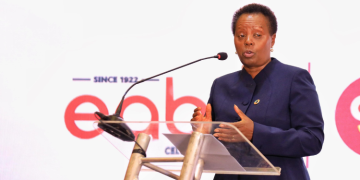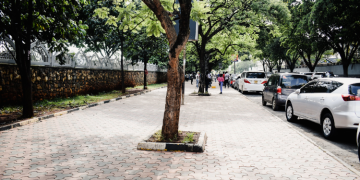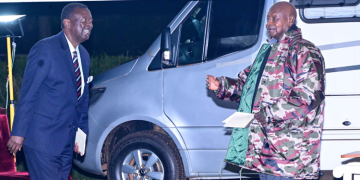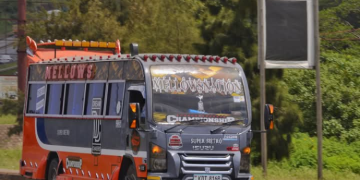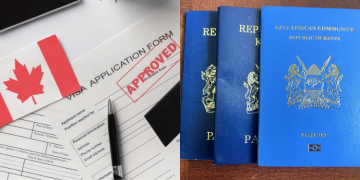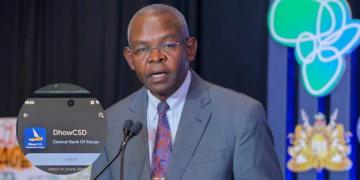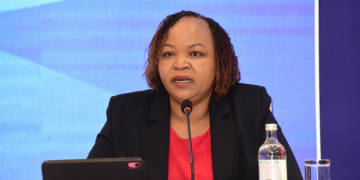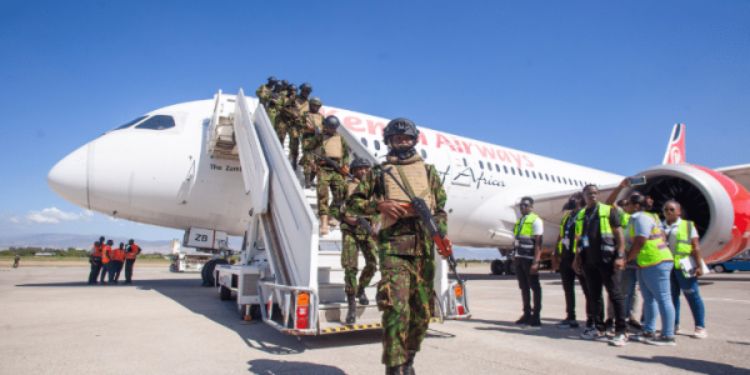On September 30, the UN Security Council voted to replace Kenya’s Haiti mission with a new Gang Suppression Force, which will be five times larger, with a “strengthened mandate” to combat gangs.
Kenya’s Foreign Ministry called it a “welcome development,” proof of Nairobi’s leadership in “mobilising international attention.” However, what the transition really reveals is that the international community has acknowledged it set Kenya up with an impossible task. For a year, Nairobi pleaded for resources to sustain 1,000 officers.
Now, suddenly, the UN approves 5,500. For a year, a $220 million funding gap paralysed operations. Now, a new force emerges, promising proper support through a dedicated UN Support Office.
The message is unmistakable: Kenya proved it could lead, but the international system proved it wouldn’t let Kenya succeed. This isn’t just about Haiti’s future or Kenya’s reputation.
It’s about whether the international community is ready to genuinely support African leadership in global security, or whether it merely wants African troops to do missions the West won’t touch on the cheap, under-resourced, and set up to fail.
A Mission Undermined From the Start
When Kenya volunteered to lead the Multinational Security Support mission in 2024, it was hailed as historic. For the first time, an African country took charge of a multinational force outside the continent, confronting gang violence that had turned Port-au-Prince into a war zone.
President William Ruto framed it as Kenya stepping up when others hesitated, enhancing credentials for leadership in the UN and the African Union. The promise was bold: 1,000 Kenyan officers leading a multinational coalition of 2,500, backed by $600 million in international funding.
The reality was starkly different. Only 751-800 Kenyan officers were ever deployed, not because Kenya lacked commitment, but because logistical constraints made it impossible.
The mission base at Port-au-Prince airport couldn’t expand. It was surrounded by gang-controlled territory.
At least 261 additional officers assigned to Haiti remain stranded in Port-au-Prince today, waiting for space and equipment that never materialised.
Other countries’ contributions? They delivered only 40% of their pledges. The multinational coalition effectively became a Kenyan mission with token support. And that $600 million budget?
The funding gap persisted throughout the mission’s existence, forcing Kenya to advance over $35 million from taxpayer funds, money that was promised would be reimbursed but which has yet to be recovered.
According to sources in contact with the contingent in Port-au-Prince, the equipment provided was deemed “inadequate or substandard,” thereby putting Kenyan forces at an additional risk. Officers reported lacking the armoured vehicles and weaponry necessary to confront well-armed gangs that operate like military units.
In February and March 2025, two Kenyan police officers were killed in action, and a third was taken hostage. These weren’t just casualties of war; they were the predictable result of sending officers into combat without proper equipment.
When the Numbers Tell a Damning Story
The official narrative speaks of “mixed results” and “tactical gains.” The Kenyan-led force secured the airport and seaport in Port-au-Prince. Kenyan troops protected key government installations.
Interior Cabinet Secretary Kipchumba Murkomen insisted officers had “secured critical infrastructure” and created space for humanitarian operations. But the statistics reveal a harsher truth. In 2024, at least 5,601 people were killed in Haiti, an increase of over 1,000 from 2023.
More than 4,000 of these deaths occurred after the MSS deployment. In the first quarter of 2025 alone, another 1,617 people were killed. These aren’t signs of a mission falling short; they’re signs of a crisis intensifying despite international presence.
Gangs, united under the powerful Viv Ansanm coalition, didn’t retreat; they expanded. They now control an estimated 90% of Port-au-Prince, up from pre-mission levels. They’ve extended their reach into the central plateau and Artibonite regions.
The gangs adapted faster than the mission could respond, functioning increasingly as armed militias rather than mere criminal organisations. Today, 1.3 million Haitians are internally displaced. Over 4.4 million people face acute food insecurity. Schools remain closed. Healthcare is largely inaccessible.
The mission created pockets of temporary security but was unable to transform the underlying reality. And that failure isn’t Kenya’s; instead, it’s the international community.
The Global Initiative Against Transnational Organised Crime put it bluntly: the MSS “lacked initial operational and tactical support to plan its deployment,” and “the design of the mission no longer reflects the reality of the situation.”
In other words, Kenyan troops were sent to fight a war without the intelligence, planning, or resources necessary to win it.
The Constitutional and Political Reckoning at Home
While our officers faced gangs in Port-au-Prince, constitutional questions mounted at home. Despite the government’s bilateral agreement with Haiti following a High Court ruling, critics, such as Third Way Alliance leader Ekuru Aukot, continue to challenge the deployment as unconstitutional.
“Our police officers should be recalled,” he argues. “They have no equipment; they’re in distress.” The legal debate reflects deeper public frustration. As Kenyans grapple with inflation, unemployment, and domestic insecurity in places like the Kerio Valley, many have questioned why scarce resources are deployed thousands of kilometres away.
Security analyst George Musamali captured the sentiment: “Kenya cannot continue to deploy without the surety of reimbursement. Let’s get our police officers back to guard the country.” The government promised to refund taxpayer money. That promise remains unfulfilled. Kenya risks losing $35 million after nine months of public spending without compensation.
The International Abandonment
In April 2025, the United States signalled it might withdraw support, calling on other donors to step up. That call went unanswered. The UN warned that without “timely, decisive and concrete international assistance,” the MSS would be left in limbo.
Kenya’s Foreign Affairs Ministry publicly insisted the mission had sufficient funds until September, while National Security Adviser Monica Juma urged the international community to increase resources for a mission operating at a “suboptimal level.” Behind closed doors, frustration mounted.
A State House source told researchers: “Kenya has done its part, now it’s time for the international community to show commitment.” By June, 400 Kenyan officers were scheduled to rotate home as contracts expired.
The mission faced potential collapse. The UN Security Council’s approval of the Gang Suppression Force came not as a sign of success, but as an acknowledgment that the MSS model had failed.
The Gang Suppression Force: Repetition or Redemption?
The new GSF promises what MSS were denied: 5,550 uniformed personnel, a UN Support Office providing logistics, and an “offensive” mandate to neutralise gangs through intelligence-led operations. US Ambassador Mike Waltz claimed the MSS “lacked the scale, scope, and resources needed to take the fight to the gangs,” and that GSF would “set that right.”
But where will the funding come from? The Security Council resolution contains no binding financial commitments, but rather the same aspirational language that accompanied the MSS. Who will deploy these 5,550 troops when other countries delivered only 40% of their MSS pledges? Why should anyone believe, this time will be different?
The operational challenges have also remained unchanged. The airport base still can’t expand. Gangs still control 90% of the capital. Coordination with the Haitian National Police remains hampered by problems of information exchange and inadequate equipment. Language and cultural barriers persist between English-speaking international forces and French/Kreyol-speaking Haitians.
Most critically, the root causes of Haiti’s crisis —political instability, economic desperation, and weak institutions —remain unaddressed. The GSF is tackling security in isolation, just as MSS did. However, security-focused interventions are often ineffective without parallel tracks that address governance, development, and justice. Haiti’s gangs thrive on unemployment, political vacuum, and institutional collapse.
You can’t shoot your way to stability. Multiple failed interventions in Haiti, including the 2004-2017 MINUSTAH mission, have proven this. Yet here we are, repeating the same pattern at five times the scale. The Global Initiative Against Transnational Organised Crime warns that this is “potentially the last viable opportunity to prevent Haiti’s complete collapse into a gang-controlled state.”
But without learning from MSS failures, GSF faces “imminent failure, representing a shameful missed opportunity and a catastrophic abandonment of the Haitian people.”
What Kenya Must Demand Going Forward
Kenya’s participation in the Gang Suppression Force must be contingent upon binding commitments that the MSS has never received.
First, secure funding upfront with guaranteed disbursement. No more voluntary contributions that leave missions starving for resources. Either assessed contributions with binding commitments materialise, or Kenya should refuse deployment. Kenyan taxpayers have already raised $35 million that may never be recovered.
Second, provide the necessary equipment and logistics prior to deployment. Our officers cannot operate with “inadequate or substandard” gear. If the UN Support Office promises logistical support, Kenya should demand detailed, written commitments with penalties for non-delivery. The 261 officers stranded in Port-au-Prince today show what happens when logistics are an afterthought.
Also Read: Trump Administration Issues Way Forward on Ruto’s Haiti Mission
Third, ensure parliamentary oversight. The constitutional questions surrounding the Haiti deployment must be resolved before any future foreign commitments. Parliament must debate, authorise, and oversee such missions.
Fourth, define success criteria and exit timelines. What does success look like? When do we hand over to Haitian forces? What triggers our withdrawal? These questions should be answered before deployment, not improvised during a crisis.
Fifth, centre Haitian ownership. Unless the GSF builds Haitian police capacity, integrates local leadership, and addresses root causes through parallel governance and development tracks, it will fail just as MSS did. Kenya should insist on meaningful Haitian co-leadership and a clear transition plan.
A Legacy in the Balance
Kenya’s mission to Haiti will be remembered as bold, unprecedented, and ultimately sabotaged. It was daring in demonstrating African leadership beyond our continent. It was unprecedented in placing Kenyan police at the heart of a global mission in the Western Hemisphere. And it was sabotaged by an international system that applauds African initiative but refuses to provide the support necessary for success. Kenya proved it could lead and operate professionally under impossible conditions, securing critical infrastructure, protecting humanitarian operations, and showing discipline despite inadequate resources. The mission’s shortcomings weren’t failures of Kenyan capacity; they were failures of international commitment.
The transition to the Gang Suppression Force exposes an uncomfortable double standard. Would a Western-led mission have been expected to operate with the same constraints? Would American or European forces accept deployment without guaranteed funding, adequate equipment, or clear support structures? The answer is obvious: No.
They wouldn’t deploy under those conditions. But Kenya was expected to and criticised when results fell short. This pattern must end. The international community wants African leadership in peacekeeping, but only if it is cheap. It wants our troops, our sacrifice, our legitimacy with communities that distrust Western intervention, but it won’t provide the resources that leadership requires. That’s not partnership. That’s exploitation dressed up as solidarity.
Charting a Different Path
As the Gang Suppression Force takes shape, Kenya faces a choice: participating on terms that protect national interests and officers. Or step back and let others bear the burden we carried alone for too long. If Kenya participates, it must be with eyes wide open. Demand binding commitments. Protect our troops. Ensure parliamentary oversight.
Define success and exit criteria. And document every lesson learned because this won’t be the last time Africa is called to lead a complex mission. But if the international community cannot or will not meet those conditions, Kenya should decline. Better no participation than another mission set up to fail. Better to preserve our resources for domestic needs than to advance millions we’ll never recover. It is better to protect our officers than to send them into combat under-equipped and unsupported.
Also Read: UN Security Council Decides Fate of Kenyan-led Mission in Haiti
For Haiti, the struggle continues. The new force represents another chance to prevent complete state collapse. But without addressing political instability, economic desperation, and institutional weakness, even 5,500 troops won’t be enough. Security without governance is temporary. Order without justice is fragile. International presence without local ownership is doomed.
For Kenya, the lesson is already clear: Global leadership is about more than ambition. It’s about matching vision with resources, law with legitimacy, and courage with accountability. Kenya proved it can lead. The question now is whether the international system is ready to let African nations succeed. The Gang Suppression Force will reveal the answer.
If it receives the support that MSS was denied, it may validate Kenya’s sacrifice as groundwork for a more durable solution. If it repeats MSS failures, it will prove that the international community learned nothing. Kenya’s Haiti mission didn’t fail. It failed.
That distinction matters for the future of African leadership in global security. Until the international community understands that difference, this tragedy will repeat, with African nations shouldering burdens the world applauds but refuses to support.
Follow our WhatsApp Channel and join our WhatsApp Group for real-time news updates.
